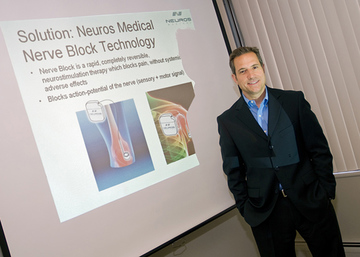Obesity is the single largest health crisis facing the world today. More than one billion people worldwide are overweight or obese, accounting for 38% of the population. In the U.S., a full 68% of adults, or some 200 million people, are overweight. On average, obese individuals pay $2,000 more per year for medical care than do those of normal weight. According to a recent study published in the American Journal of Public Health, obesity accounts for 18% of deaths among Americans aged 40-85. This is an epidemic, a silent disease that impacts health, living costs and quality of life for which there is currently no effective, non-invasive treatment.
And the problem is getting worse.
Obesity accounted for about 3.5% of deaths for those born between 1915 and 1919, but it accounted for about 5% of deaths for those born 10 years later. Another 10 years later, for those born in the 1930s, obesity was the cause of about 7% of deaths, and the trend is continuing. Obesity is also strongly associated with a long list of other health issues, including cardiovascular diseases, Type 2 diabetes, high blood pressure, high cholesterol, high triglycerides, cancer, sleep apnea, osteoarthritis and more.
“A 5-year-old growing up today is living in an environment where obesity is much more the norm than was the case for a 5-year-old a generation or two ago,” study co-author Bruce Link, a professor of epidemiology and sociomedical sciences at Columbia, said in a statement. “Drink sizes are bigger, clothes are bigger and greater numbers of a child’s peers are obese. And once someone is obese, it is very difficult to undo. So, it stands to reason that we won’t see the worst of the epidemic until the current generation of children grows old.”
As of 2017, roughly 80 million Americans are obese, creating a significant market opportunity for a safe and effective weight loss drug. In fact, for the right product, this opportunity all but guarantees blockbuster status while simultaneously benefiting and improving the quality of life of billions of people worldwide. As evidenced by the large population of overweight or obese adults, however, the current management options for obesity are deficient and different approaches to fight this epidemic are needed.
Obesity: A New Solution
Enter Gila Therapeutics, an early stage biotech company and part of the iSelect platform, which is developing products to both help overweight and obese patients who are trying to lose weight, as well as those patients who are trying to prevent future weight gain. Based in Minnesota, the company’s platform and product pipeline are based on recent discoveries by the founders.
Its first product, currently in development, is a therapeutic gum that delivers a gastrointestinal peptide, PYY3-36, directly to the patient’s mucus membranes, targeting the specific receptors in the mouth that trigger a feeling of fullness. When chewed five minutes before a meal, the gum delivers the peptide and can help the patient decrease their caloric intake and achieve their weight loss and maintenance goals, all without adsorption into the bloodstream. Gila’s development is set to enter clinical trials later in 2017, and the company says it has a strong pipeline of additional molecules to follow peptide PYY3-36, some of which will provide additional benefits when combined.
In recent years, research and clinical trials have been conducted to test the efficacy of this gastrointestinal peptide in reducing obesity and preventing weight gain, but they have never succeeded due to the inducement of nausea. To overcome this previous issue, Gila Therapeutics has discovered a pathway for the treatment of obesity in a non-invasive, non-absorbed manner that circumvents nausea and is designed for mass market consumption.
Click here to learn more about Gila Therapeutics and its unique new approach to weight loss.






